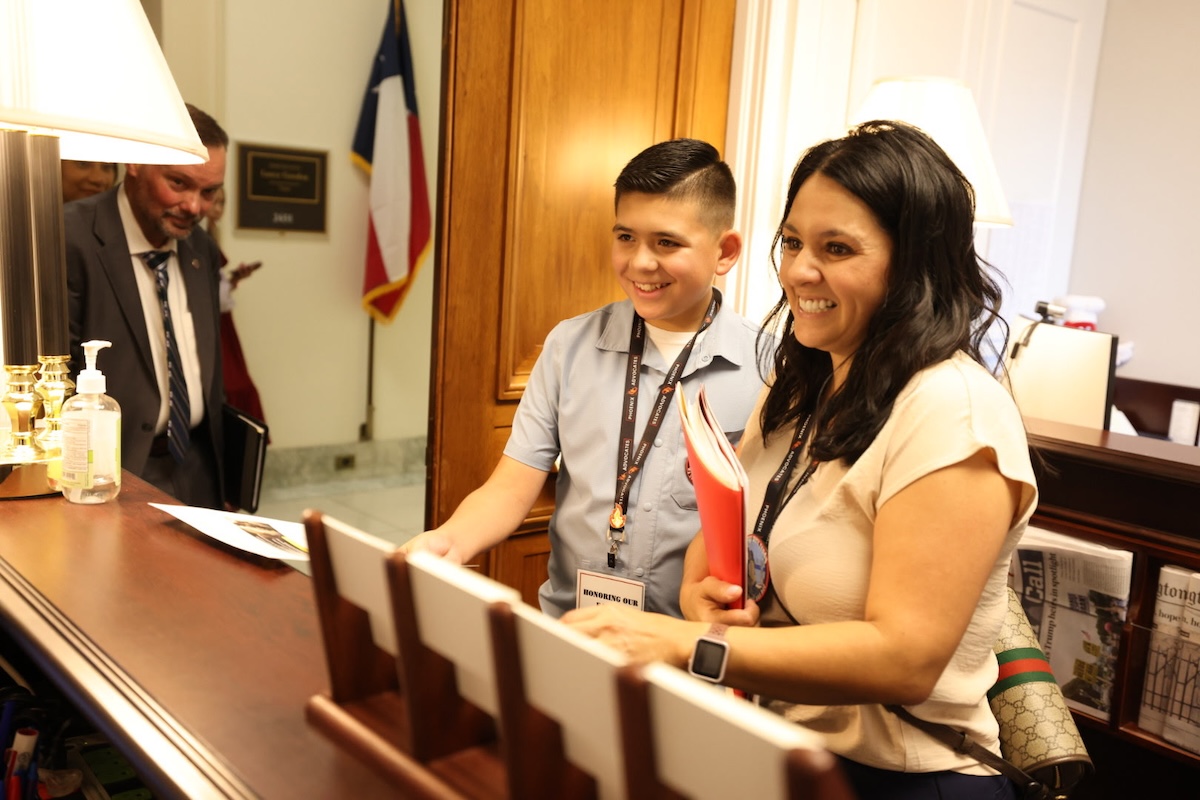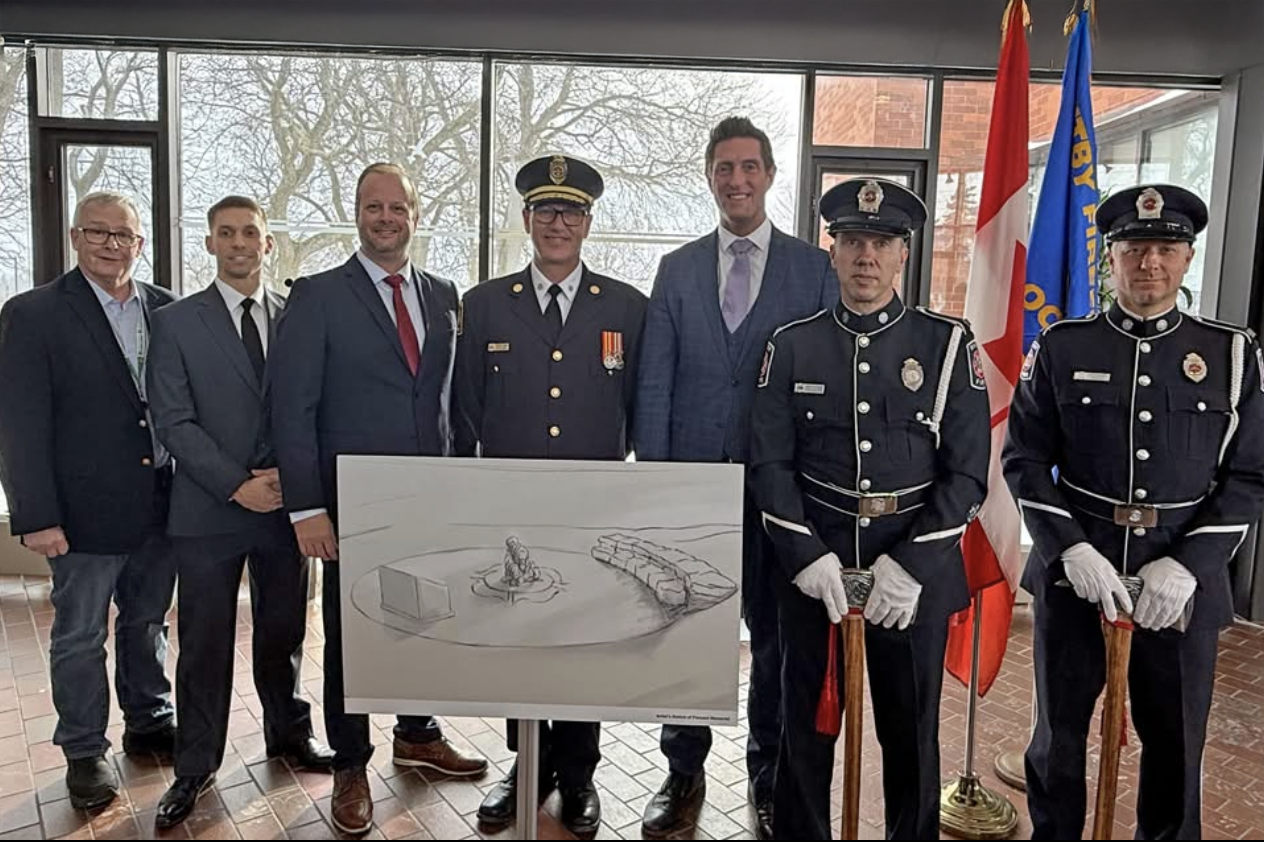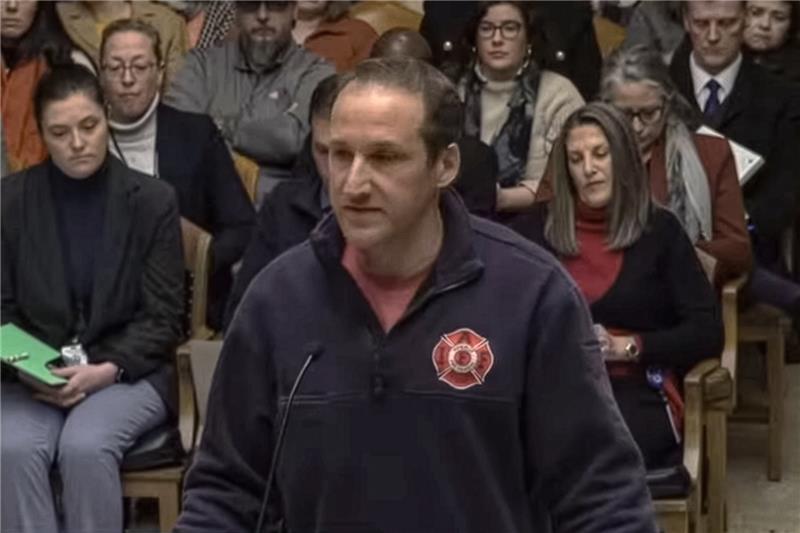More than 50 family members, fire fighters, IAFF staff, and advocates from across the country met at the U.S. Capitol this week with one goal: urge Congress to pass the Honoring Our Fallen Heroes Act.
The bipartisan ‘Honor Act’ (S. 237 / H.R. 1269) would expand the Public Safety Officers’ Benefits (PSOB) program to include occupational cancer, the leading cause of death among fire fighters. The legislation aims to close a gap in federal law by recognizing cancer as a line-of-duty illness, ensuring first responders and their families receive the financial support and death benefits they deserve.
“These families have seen firsthand the devastating impacts occupational cancer has on the fire service. Fire fighters are losing their lives to occupational cancer at alarming rates, and it’s time for the federal government to finally recognize these sacrifices as occurring in the line of duty,” said General President Edward Kelly. “I want to thank all the members of Congress who met with the families of our fallen and are fighting side by side with the IAFF to pass the Honoring Our Fallen Heroes Act.”
These families have seen firsthand the devastating impacts occupational cancer has on the fire service. Fire fighters are losing their lives to occupational cancer at alarming rates, and it’s time for the federal government to finally recognize these sacrifices as occurring in the line of duty.
general president edward kelly
Since being reintroduced earlier this year, 116 members of Congress – 83 Democrats and 33 Republicans – have signed on to cosponsor the legislation in the House. In the Senate, 42 members have backed the bill, including 16 Republicans and 26 Democrats.
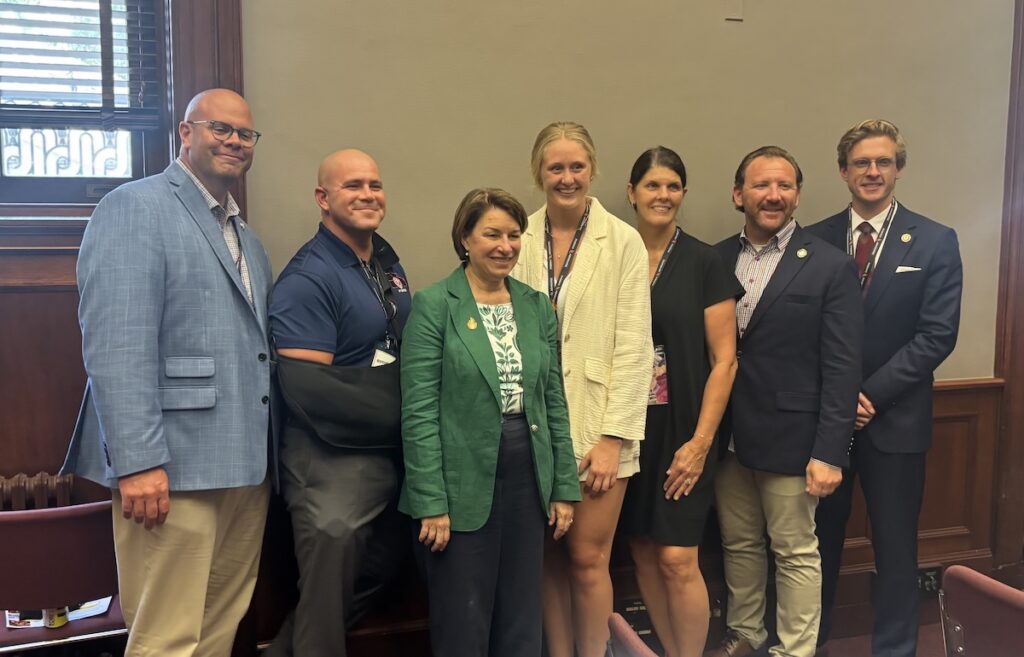
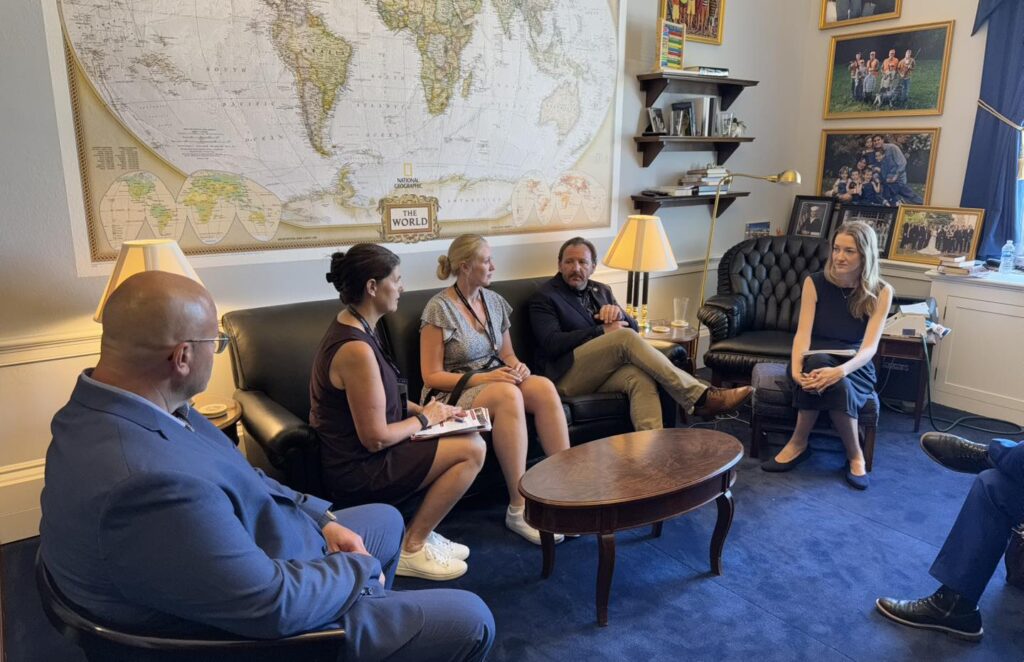
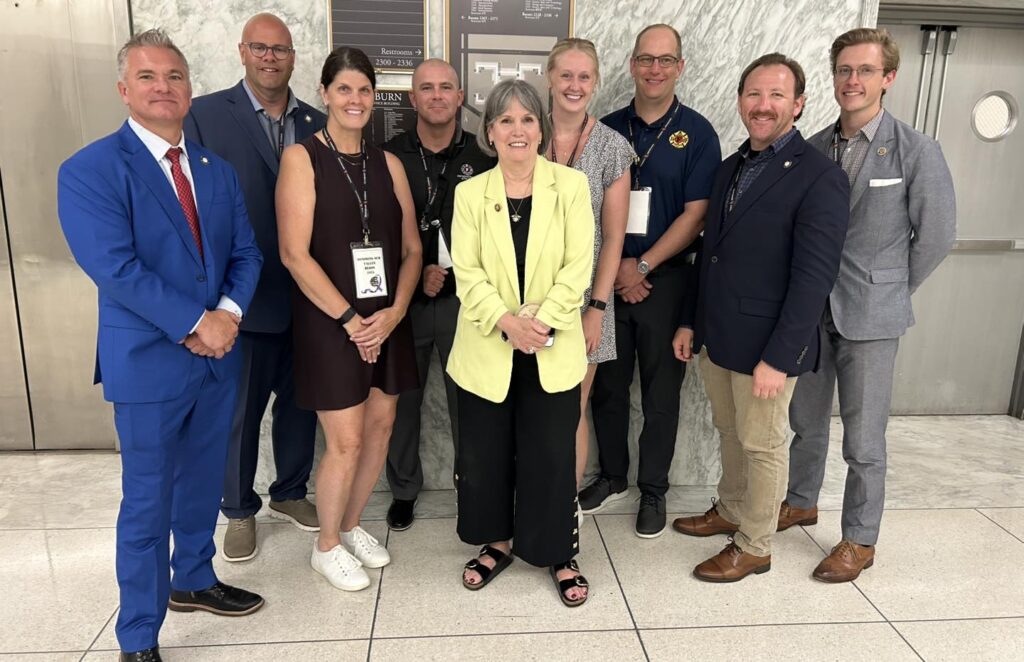
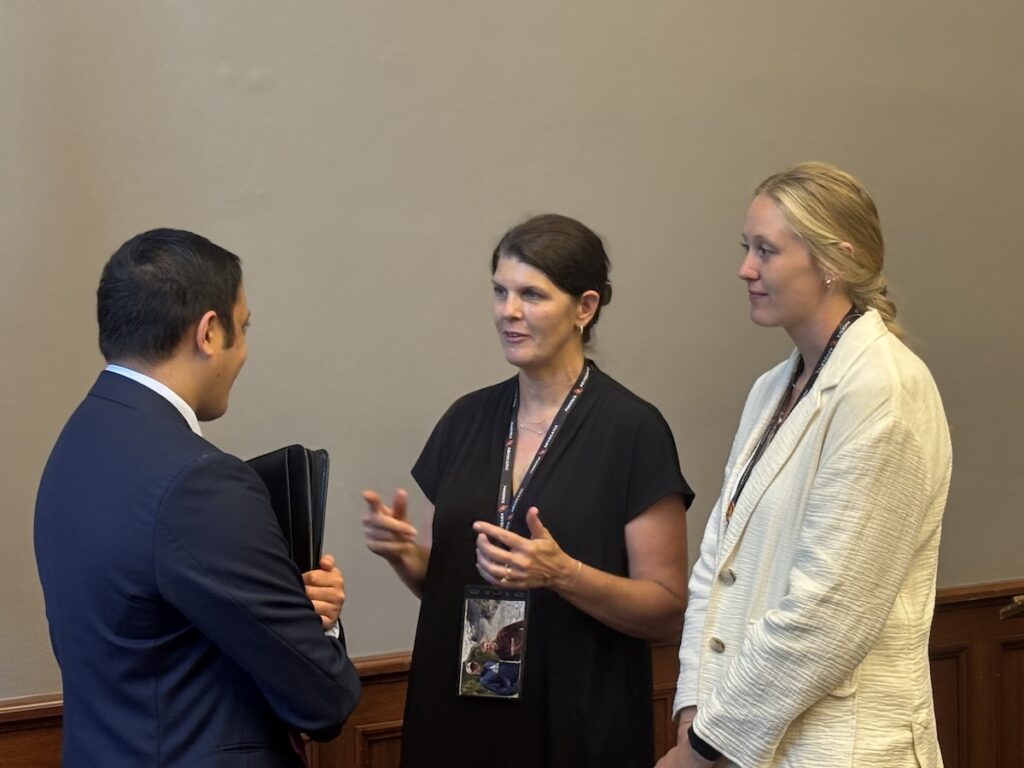
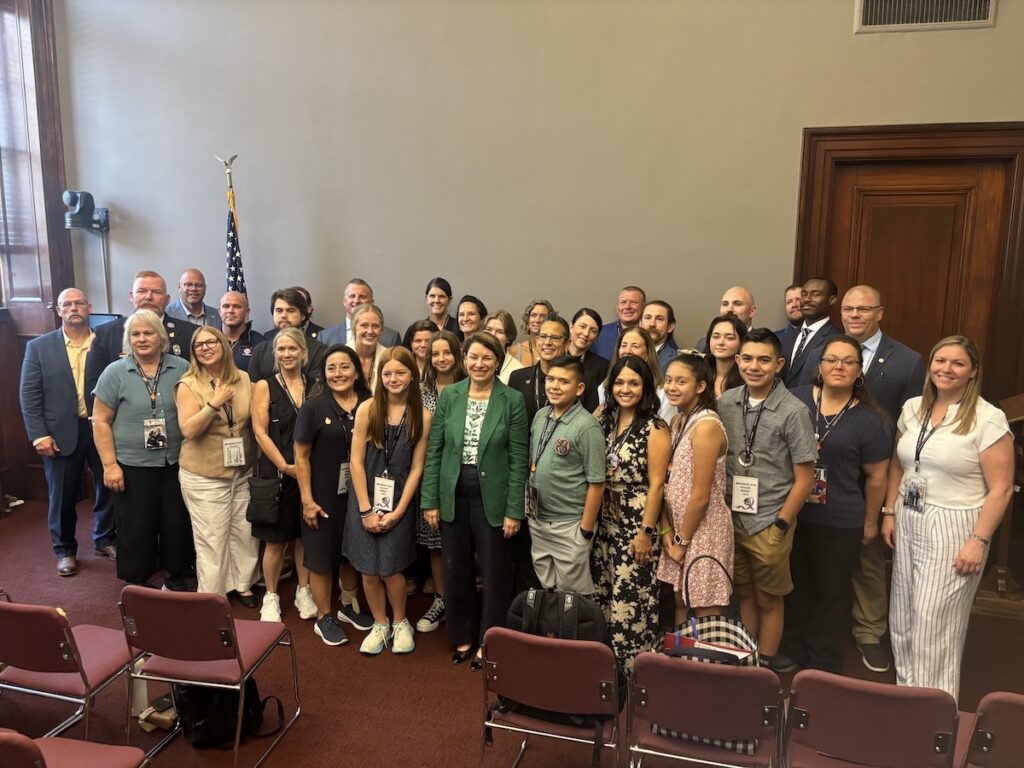
“These are not isolated tragedies,” said Hamilton County, IN Local 4416 Fire Fighter Josh Southerland, who lost his father to kidney cancer in 2020. “We’re hoping to get this passed through so we can get it done for the families.”
Southerland and members of the group met with a wide range of legislators including Rep. Betty McCollum (D-MN), Sen. Chuck Grassley (R-IA), Rep. Jim Baird (R-IN), and Sen. Adam Schiff (D-CA). The group also spent time with Sen. Amy Klobuchar (D-MN), one of the bill’s lead sponsors.
In addition to Sen. Klobuchar, the ‘Honor Act’ is being led by Sen. Kevin Cramer (R-ND), Rep. Mary Gay Scanlon (D-PA), and Rep. Carlos Gimenez (R-FL). All four lawmakers have played a key role in working with the IAFF to build bipartisan support for legislation.
“So far, the legislators have been very receptive. They’ve been engaged, and asked plenty of questions, so I’m hoping for a positive outcome and a quick vote passing through this year,” said Southerland.
Klobuchar addressed the group during lobbying efforts, encouraging families and advocates “to not give up” on efforts to get the bill passed. “Thank you to the fire fighters who have never given up on this,” she said, while adding, “we have worked really hard on this legislation because we know what the facts are.”
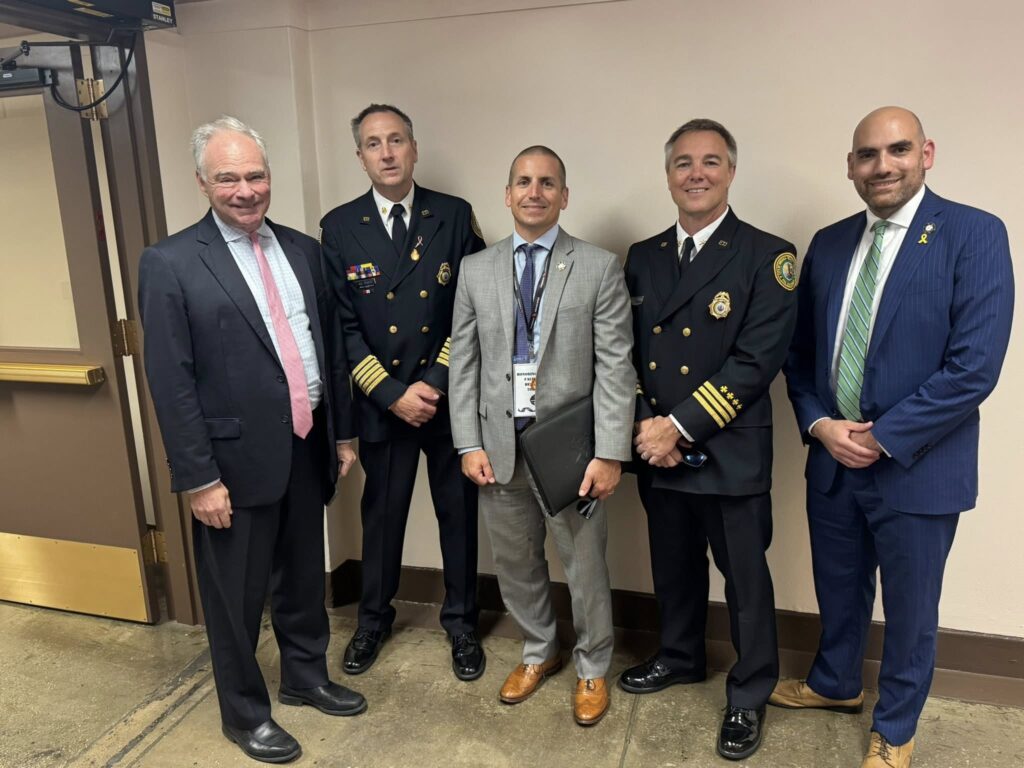
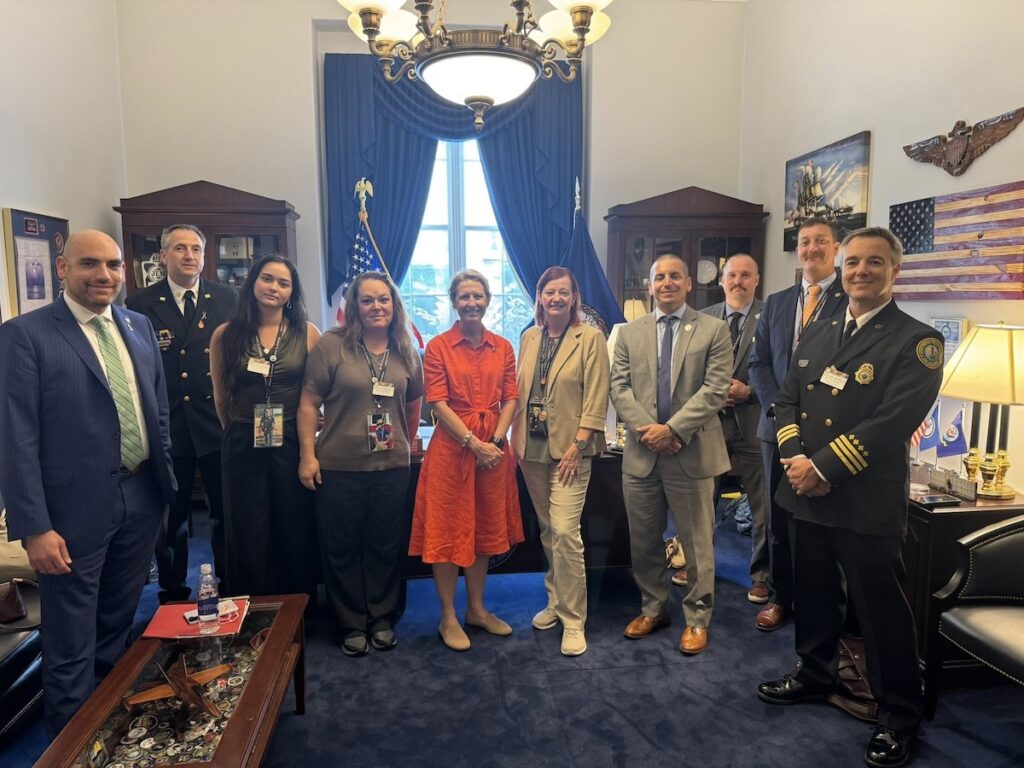
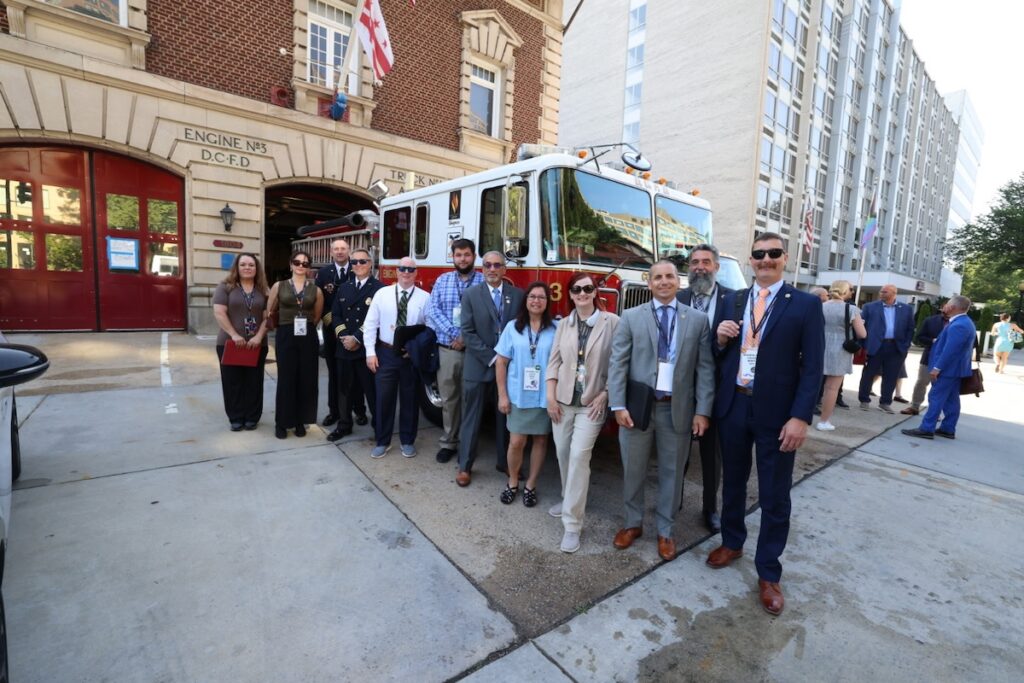
Among those lobbying was Cylina Cervantes, who traveled from California, with her three children in honor of her late husband, Rancho Cucamonga, CA Local 2274 fire fighter Miguel Cervantes, who was just 45 when he died in 2023 after a seven-month battle with cancer.
“This isn’t supposed to be my story,” said Cervantes. “It still doesn’t feel real. My husband was a fire fighter for over 22 years. He worked for his dream department, got promoted to engineer medic, and even served as union vice president. We thought we had a lifetime ahead of us.”
Passing this would help support people like my hero who lost his life to cancer. We don’t want other families to go through what we did, without the support they need and deserve.
cylina cervantes
Miguel was diagnosed with Follicular Lymphoma in 2022, which later progressed to Diffuse Large B-Cell Lymphoma linked to toxic carcinogens from the job. “Everything about him was strong and heroic,” said Cervantes. “Watching cancer wear him down in just seven months was heartbreaking.”
On Capitol Hill, Cervantes, alongside her children, Isaac (15), Jacob (13), and Madeline (12) went door to door, educating lawmakers about the growing cancer crisis in the fire service, and encouraging them to pass the Honoring Our Heroes Act to support heroes like Miguel.
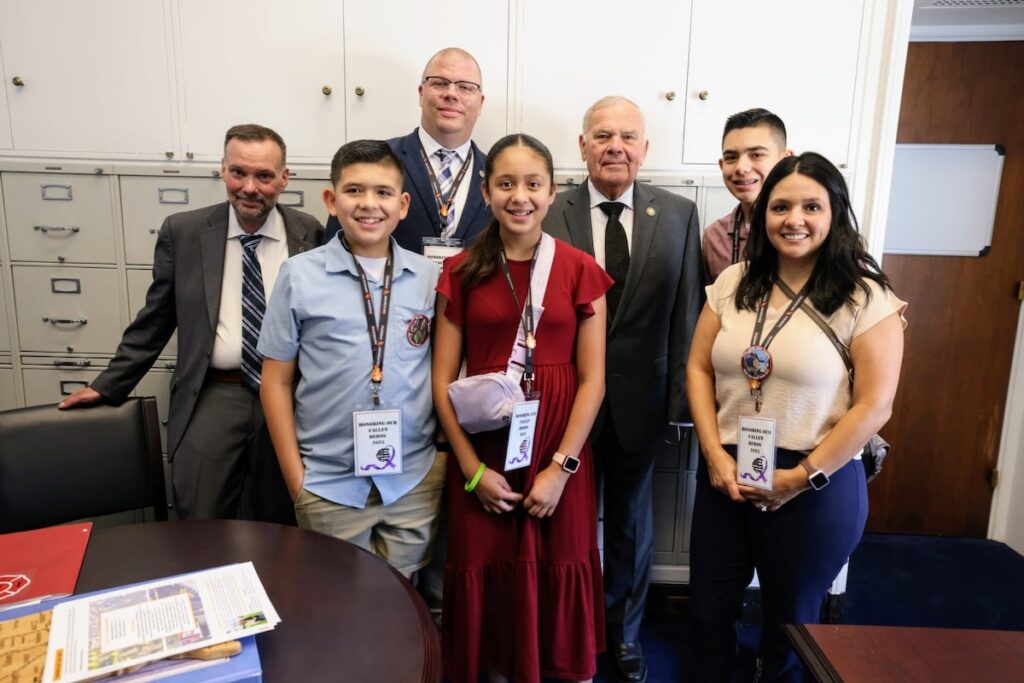
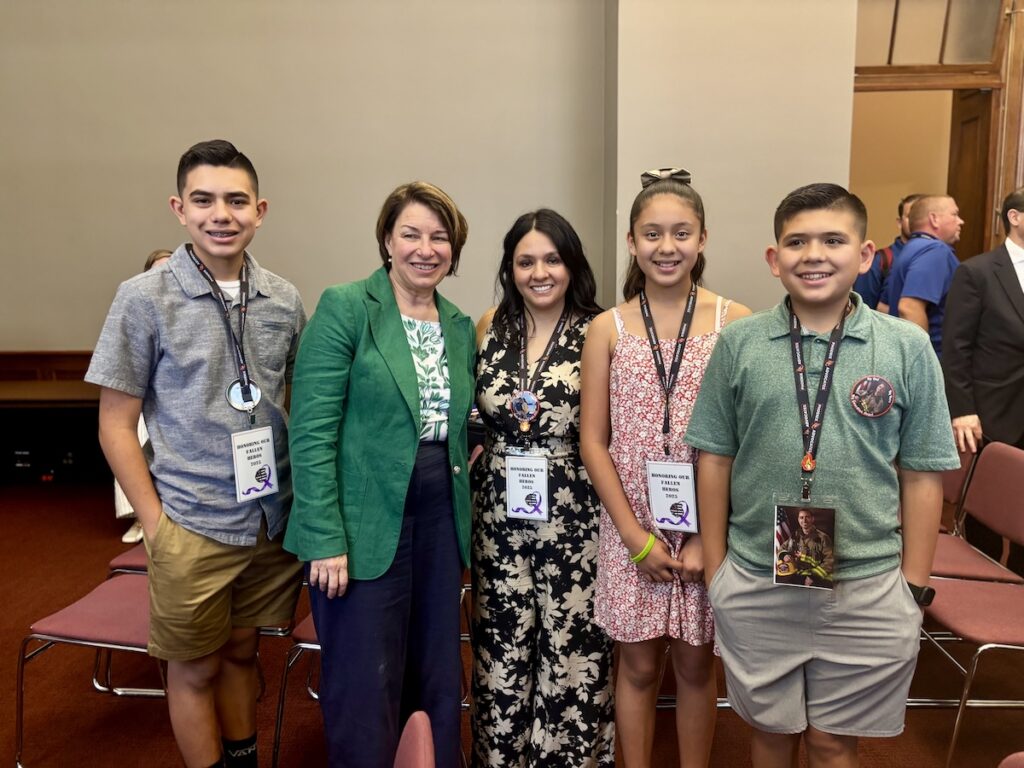
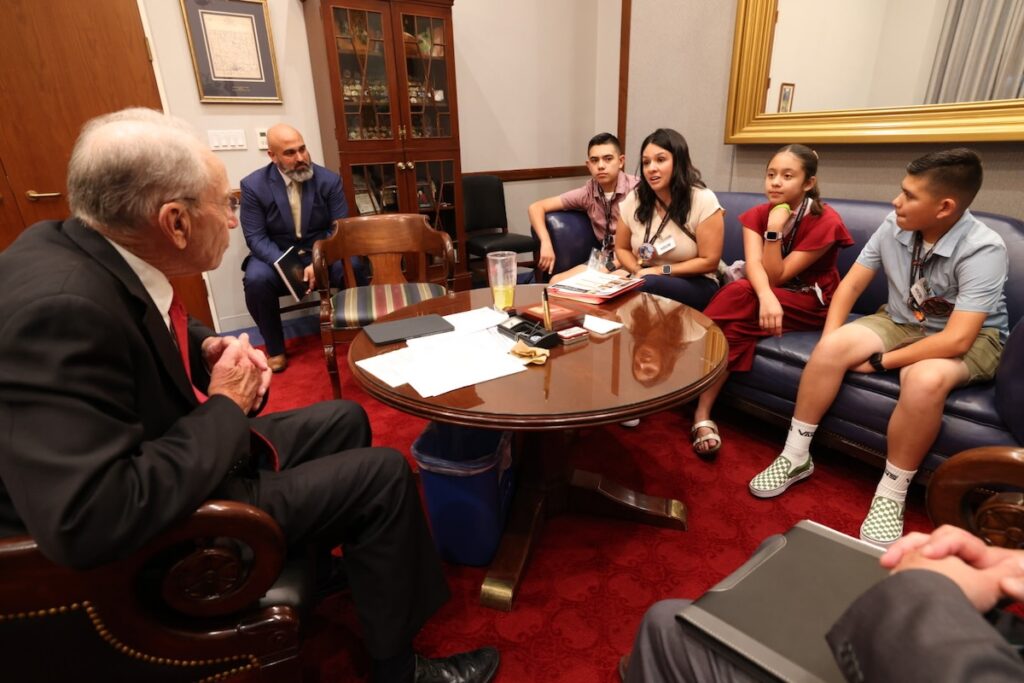
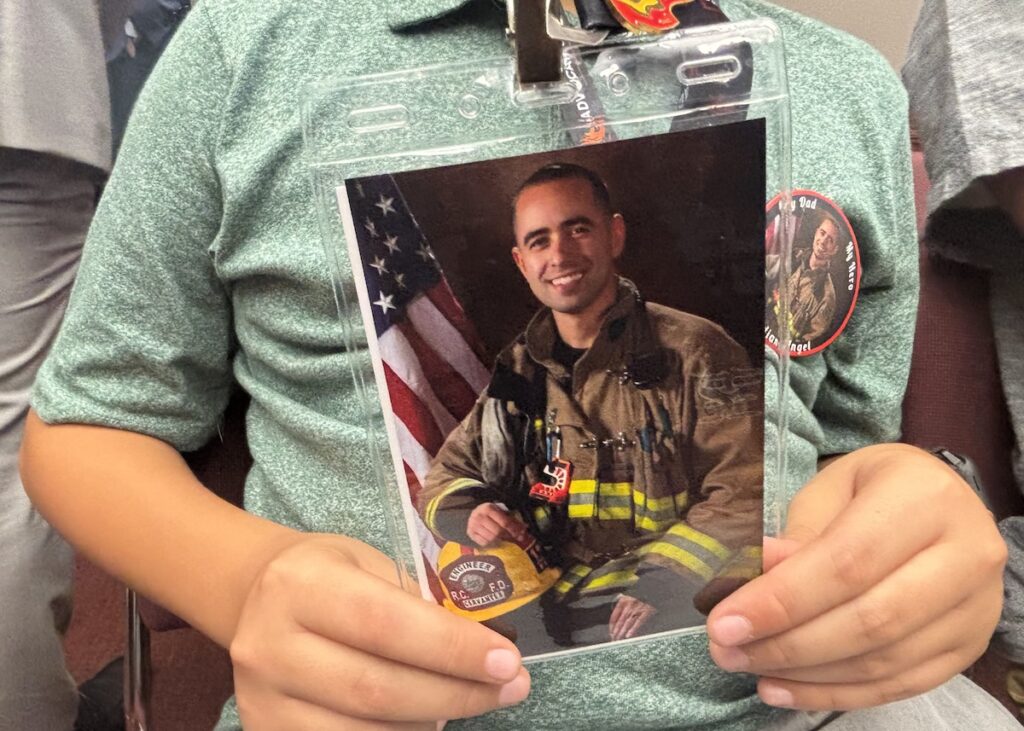
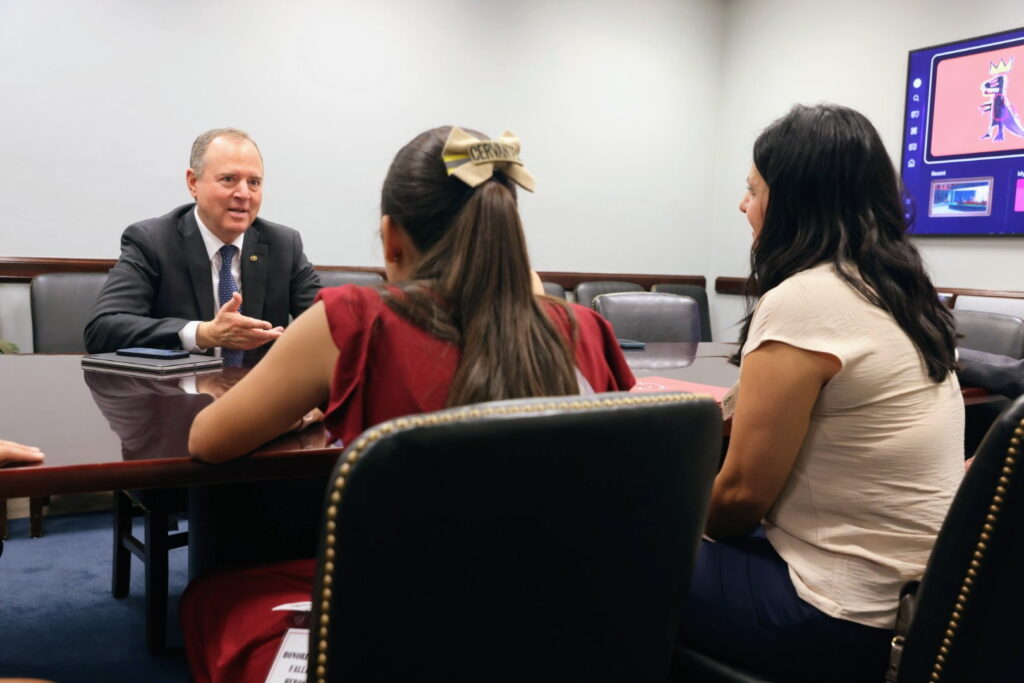
“Passing this would help support people like my hero who lost his life to cancer,” said Cervantes. “We don’t want other families to go through what we did, without the support they need and deserve.”
As families make their way through the halls of Congress, they’re hoping their shared stories of heartbreak will push forward support for those who answered the call.
“It’s about honoring their sacrifice,” said Southerland. “And making sure the system honors it too.”
In the weeks leading up to their lobby day, the IAFF sat down with some of these families to learn more about their journey and why they’re fighting for the ‘Honor Act’. You can see their stories here or by visiting the IAFF’s YouTube page.
